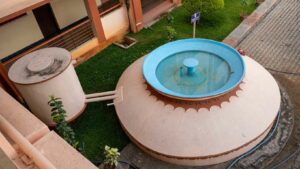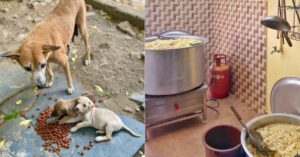Leaving Cushy Life In Amsterdam, Couple Return To Roots To Build Organic Paradise
Living behind a life in Amsterdam, Shammy Jacob returned to his hometown in Tamil Nadu with his wife Charlotte Van't Klooster to set up an organic farm that's also an eco-friendly homestay
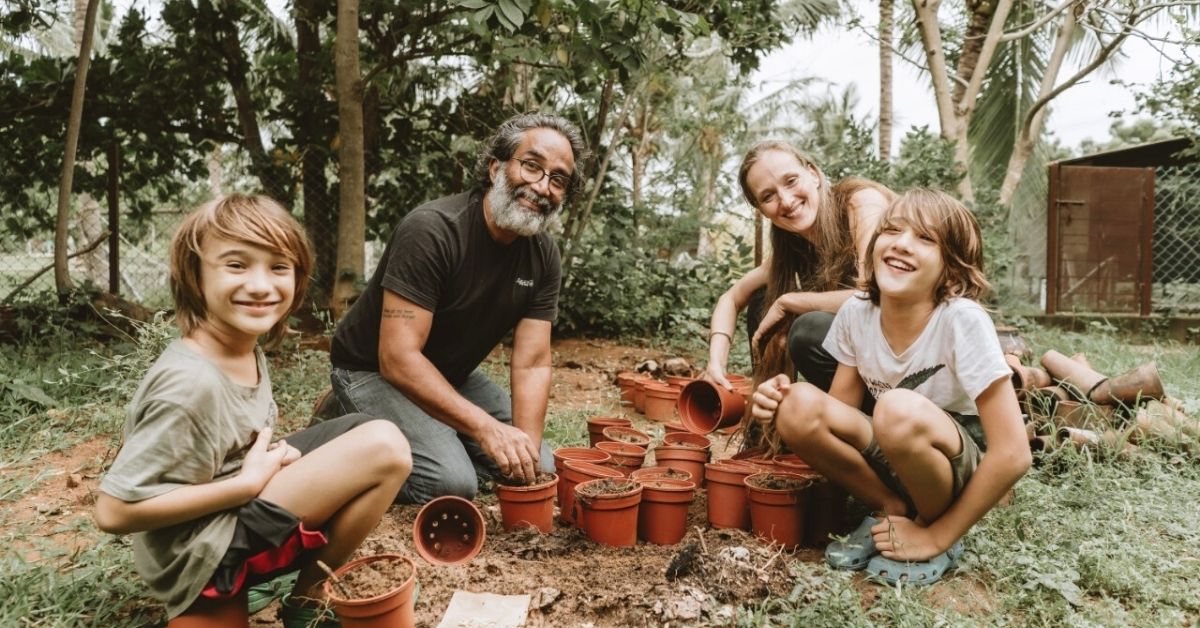
Shammy Jacob, his wife Charlotte Van’t Klooster and their two kids have been living in Thalambur, Tamil Nadu, on Jacob’s ancestral farm since 2013. This, however, was not always the family’s way of life.
For over two decades, Shammy worked in Amsterdam for Nike, drawing a generous salary. This is also where he met Charlotte. After working abroad for over two decades, his experiences shaped his need to return to his homeland to do something meaningful.
“I realised that a city like Amsterdam was already developed, and I was only working to improve on existing systems. While in India, there was massive scope of improvement in terms of size and impact,” Shammy says adding, “Even if I could convince one neighbourhood to segregate waste in India, the impact would be huge.”
Unable to view the above button? Click here
Shammy then left behind his cushy job to start Jacob & Kloosters Farm to impart lessons on innovative thinking, organic farming, conducting reptile management classes, reviving water bodies, and leading a sustainable life.
For a better planet

Speaking with The Better India, Shammy says his life has always been unconventional, and that returning to his farm was not something that had always been on his mind. “I completed my engineering in 1987, but eventually changed course to study fashion and stitching. I got a job in Indonesia in 1990, where I was making clothes for companies,” he explains.
Shammy moved to the US in 1996, after receiving an offer from Nike. “Here, I was working in the sustainability sector, and studying its impact at large. I worked closely on how the negative impacts on the environment can be mitigated through healthy business practices,” he says, adding that the experience changed the way he perceived life.
In 2000, he moved to Amsterdam, and continued to work with the company in senior positions. “After 15 years of work, sustainability became a way of life for me. I started thinking of ideas that would allow me to practice sustainability and teach the masses to think of innovative solutions to solve environmental problems,” he says. “In 2009, I quit my job and decided to start an agency based on those values, and create a better planet.”
Shammy attended THNK, Amsterdam, School of Creative Leadership in 2012. “I worked on projects with societal values and those that benefit humans at large. To implement what I had learned, I decided to help improve the Indian scenario in terms of pollution and environment,” he says.
He took a project with the Indian railways to clean platforms and trains. “Millions of passengers use trains to commute, and keeping them clean is a challenge. I collaborated with the government agencies. However, the progress was slow, and the funds started weaning. The project came to a halt,” Shammy says.
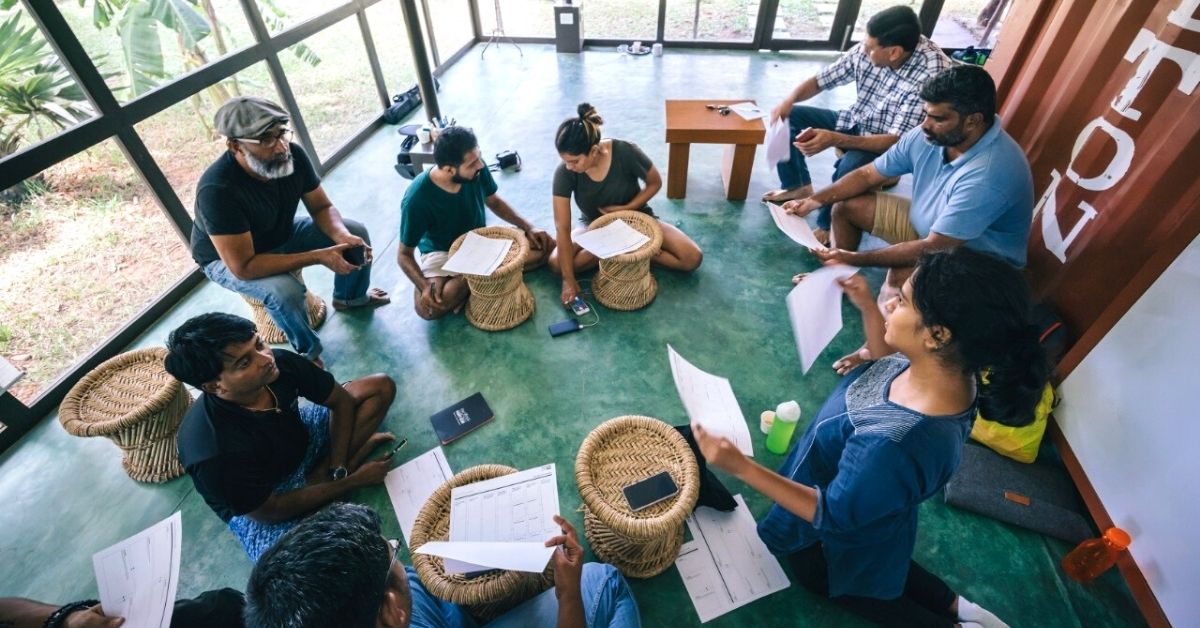
Despite failing, the experience helped Shammy understand human behaviour when it came to waste management. “It helped me realise that people are not comfortable carrying waste for long distances in their pockets or bags. The avenues for waste disposal need to be convenient,” he explains.
In 2013, Shammy made the final call, and moved to his ancestral farmland near Chennai. “We wanted our children to grow in a natural and healthy environment, amidst animals and plants. Hence, we decided to design the farm accordingly. Out of the 13 acres of land, we carved out a four-acre area to grow organic vegetables, fruits, have poultry, cattle and an innovation centre,” he says.
Shammy says he simultaneously worked as a consultant with a Dutch agency to meet the family’s living expenses.
Along with the consultation, he prepped a curriculum for students and corporates alike, to transcend the ideas of innovation and sustainability. The course was woven around the sustainable development goals of the United Nations. “For example, the students could address a problem such as deforestation, understand the cause, sketch out an idea to find solutions, and present them,” he adds. About 250 children have attended the sessions that stretched for six hours.
A similar approach was chalked out for corporates to encourage them to find innovative sustainable solutions in their professional life. Around 20 companies attended the workshops, but this has stopped since the COVID-19 outbreak.
Sabira Lakhani, one of the participants of the innovation workshop says, “I really enjoyed working in an outdoor innovation space, because of the proximity to nature, which allows room for creativity. It’s also different from the conventional work space, as there is fresh air and trees to stimulate your mind.”
Sabira adds that the space enables interactions with people outside the working environment, which means getting away from desk into a more collaborative mode.
Sustainability to secure future generations

To earn income, Shammy has collaborated with the Kalinga Centre for Rainforest Ecology, a herpetology foundation, and organises workshops for enthusiasts. The farm is open for guests to book via Airbnb. “We have met like-minded people who like to farm and share their experiences. A store is set up to offer fresh organic farm produce. Some locals farmers have been roped in to sell their produce at the store,” he adds. The farm has also employed seven people from the village.
The farm mainly operates on solar power for its energy and water requirements. “We do not use electricity from the grid, apart from the occasions where air conditioning is needed. The farm is an example of how one can lead a sustainable rural life while staying in proximity with the city,” he says.
Charlotte, an anthropologist and a biologist finishing her PhD, says she has enjoyed every bit of her transition. “It was initially difficult to get acclimated with the dynamics of the local environment here. I could do a lot of things in one hour in the Netherlands, but here I struggled. But I eventually settled in, and it is good to live on a farm close to nature,” she adds.
However, the journey has not been a smooth sail for the family. Shammy says their farm was away from the city, which meant they had to travel at least 4 km to get supplies like water, groceries and other daily needs. “The weak internet connection posed connectivity issues, and Charlotte and I had to struggle with arranging calls, accessing information, and working with international clients,” he says.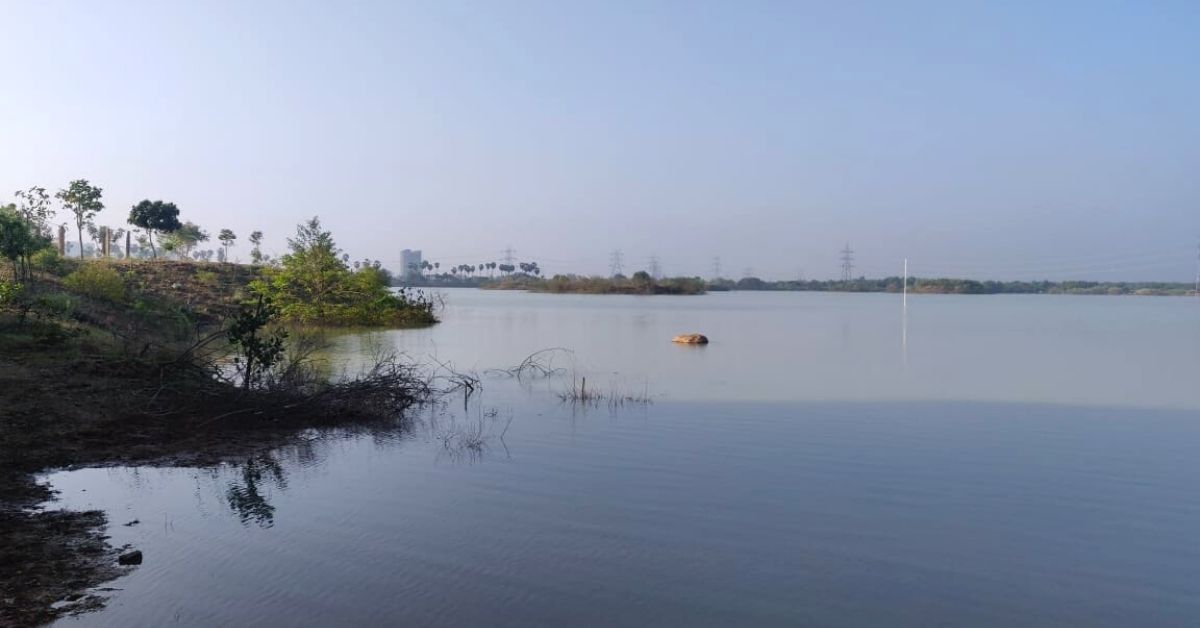
He adds that there was no stable power and infrastructure. “We built everything from scratch. In the last few years, we have witnessed natural disasters like the floods in 2015, and droughts of 2019,” he says.
Shammy took the help of experts and corporate funding, and revived the Siruseri Lake by de-silting the water body, planting 1,000 indigenous trees, and taking measures to recharge groundwater levels. “It has helped solve the water crisis in the area,” he adds. He is currently working as a behaviour change architect for Urbaser Sumeet, a global waste management company that is outsourced by the Chennai local body. The company’s aim is to help 6 million people adapt to segregating waste at home.
Expressing her views about adopting sustainability and teaching, Charlotte says, “It is important for the younger generation to understand the crucial issues they face, such as waste management, deforestation, floods, and climate change, to name a few. Connecting with nature will help them find solutions and prepare for the crisis. The same goes for adults. The farm experience can help them unwind and re-energise for their hectic professional life. Working professionals find comfort in petting cattle and learning how to grow vegetables, and understand how they can adopt elements of sustainability in their daily lives,” she adds.
Edited by Divya Sethu
This story made me
- 97
- 121
- 89
- 167
Tell Us More
We bring stories straight from the heart of India, to inspire millions and create a wave of impact. Our positive movement is growing bigger everyday, and we would love for you to join it.
Please contribute whatever you can, every little penny helps our team in bringing you more stories that support dreams and spread hope.






